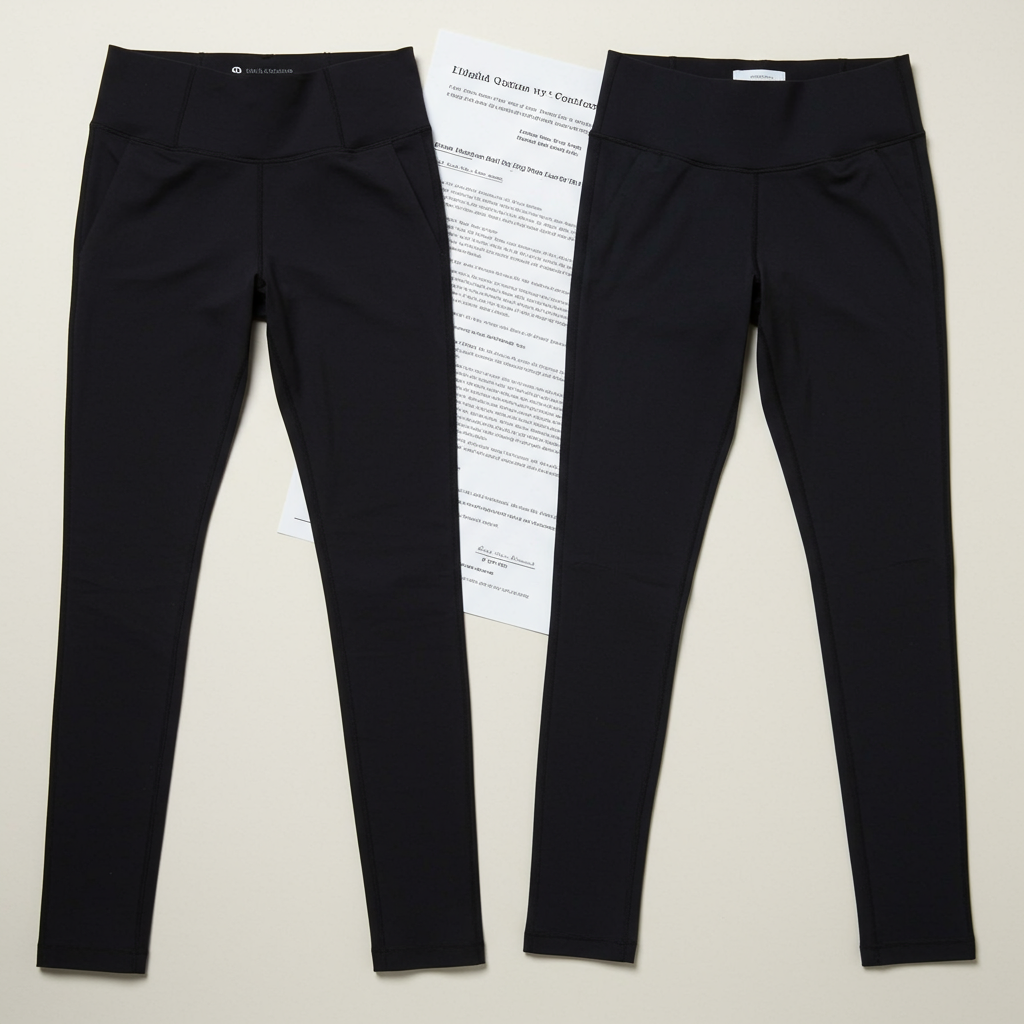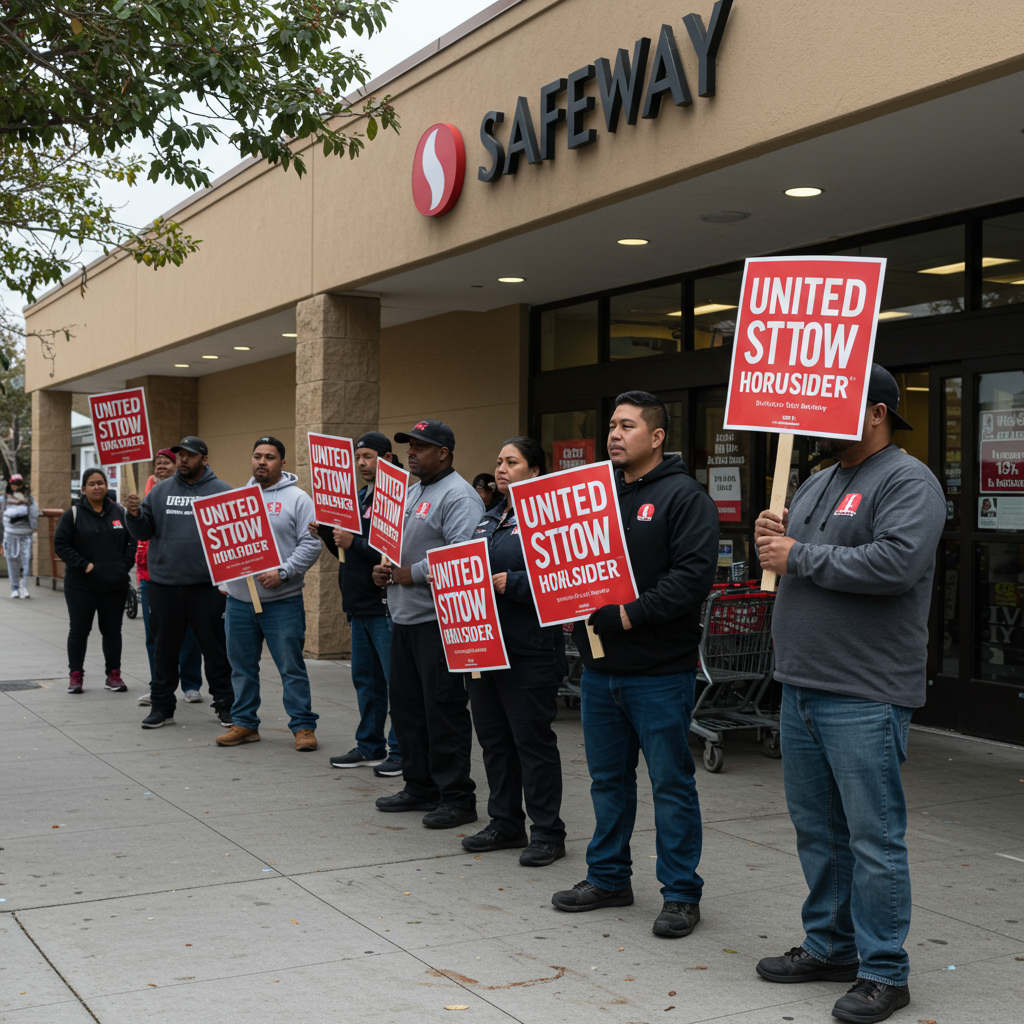Major athleisure brand lululemon has filed a <a href="https://news.quantosei.com/2025/07/01/lululemon-sues-costco-over-confusingly-similar-apparel-products/” title=”BREAKING: Lululemon Sues Costco Over Alleged Apparel Dupes”>lawsuit against warehouse giant Costco, accusing the retailer of selling lower-priced items that unfairly duplicate some of its popular apparel designs. This legal action centers on claims that Costco is leveraging Lululemon’s established reputation and designs to sell infringing versions of its products, potentially confusing shoppers.
Filed in the U.S. District Court for the Central District of California, the lawsuit alleges that Costco has “unlawfully traded” on Lululemon’s significant investment in research, development, and design. Lululemon asserts that the unauthorized sale of apparel using knockoff versions of its patented designs constitutes intellectual property infringement and unfair competition. The move highlights the intense battle brands face in protecting their designs and market position in the booming athleisure sector.
The Core Allegations Against Costco
Lululemon’s complaint specifically targets Costco’s sale of certain private-label or co-branded products. The Vancouver-based company claims that Costco is known to contract with manufacturers who also produce goods for popular brands like Lululemon. However, according to the lawsuit, Costco and these manufacturers often do not clearly inform consumers about this connection when selling items under the Kirkland or other labels.
This alleged lack of transparency, Lululemon argues, can lead some shoppers to mistakenly believe that the Kirkland-branded products, or similar items sold at Costco, are made by the original designer or supplier of the high-end versions. Lululemon contends that Costco does not take steps to dispel this ambiguity, thereby capitalizing on the confusion and Lululemon’s hard-earned goodwill and reputation. The practice is framed by Lululemon as diluting its brand value and infringing on its unique designs.
Protecting Innovation and Intellectual Property
A spokesperson for Lululemon emphasized the company’s commitment to safeguarding its creative assets. “As an innovation-led company that invests significantly in the research, development, and design of our products, we take the responsibility of protecting and enforcing our intellectual property rights very seriously and pursue the appropriate legal action when necessary,” the spokesperson stated. This sentiment underscores Lululemon’s position that its designs are not merely aesthetic but the result of substantial investment and engineering, deserving legal protection.
The lawsuit is a direct challenge to the growing trend of “dupes,” where retailers offer products that closely resemble popular, often expensive, items at a fraction of the cost. While offering affordable alternatives can benefit consumers, brands like Lululemon argue that direct duplication and potential consumer confusion cross legal lines, particularly when patented designs are involved.
Specific Products Named in the Lawsuit
Lululemon’s lawsuit points to several of its signature items that it believes are being duplicated and sold by Costco. Among the popular products cited are its renowned Scuba hoodies, the flattering Define jackets, and the comfortable ABC pants. These items are core to Lululemon’s brand identity and significant revenue drivers.
The lawsuit specifically calls out one alleged duplicate product sold by Costco: the Hi-Tec Men’s Scuba Full Zip. Lululemon’s legal filing includes a screenshot purportedly from Costco’s website showing this item priced at $19.97. This stands in stark contrast to Lululemon’s own men’s jackets, which often retail for well over $100 each, highlighting the significant price disparity between the original and the alleged dupe.
Legal Demands and Next Steps
Lululemon is seeking significant relief from the court. Primarily, it is asking for a jury trial to hear its claims. The company is also requesting that the court issue an injunction, which would legally compel Costco to immediately cease selling the products Lululemon identifies as infringing duplicates.
In addition to stopping future sales of the alleged dupes, Lululemon is also seeking monetary damages. The specific amount of damages is not detailed in the initial complaint, but it is expected to cover the financial harm Lululemon claims to have suffered due to Costco’s actions, including lost profits and damage to its brand. The case will now proceed through the legal system, potentially involving discovery, motions, and eventually a trial or settlement unless resolved sooner.
Silence from Costco and Past Legal Battles
As of the time of the initial reporting, Costco, headquartered in Issaquah, Washington, had not issued a public statement or responded to requests for comment regarding the lawsuit. This lack of immediate response is typical in the early stages of significant legal disputes as companies prepare their defense.
This is not the first time Lululemon has been involved in high-profile legal battles concerning its intellectual property. In 2021, the company was engaged in a dispute with interactive fitness company Peloton, also centered on alleged design infringement related to activewear. Interestingly, that conflict was eventually resolved, leading to a five-year partnership announced two years later, under which Lululemon became Peloton’s primary athletic apparel partner. This past experience suggests that while Lululemon is willing to pursue legal action aggressively, resolutions can sometimes take unexpected turns, potentially including strategic business agreements.
Implications for Brands and Retailers
The Lululemon vs. Costco lawsuit is a significant development in the ongoing tension between brands that invest heavily in unique designs and retailers who offer lower-cost alternatives, sometimes through private labels. For consumers, the availability of “dupes” can be appealing, offering access to trending styles at affordable prices. However, for brands, unauthorized duplication threatens their investment, reputation, and market share.
Legal cases like this highlight the complexities of intellectual property law in the retail space, particularly how patents and trademarks apply to apparel designs and whether consumers are genuinely confused about the source of goods. The outcome could set precedents or influence how retailers approach their private label strategies, especially when those products bear a close resemblance to distinctive items from established brands. It underscores the importance for both brands and retailers to navigate the fine line between offering competitive products and infringing upon protected designs and reputations.
Frequently Asked Questions
What exactly is Lululemon accusing Costco of doing?
Lululemon’s lawsuit claims that Costco is selling unauthorized and unlicensed apparel products that are lower-priced duplicates, or “dupes,” of its popular items. Lululemon alleges these products use knockoff versions of its patented designs, infringing on its intellectual property rights. The lawsuit also claims Costco leverages Lululemon’s reputation and potentially confuses consumers by not clearly disclosing the lack of connection between the alleged dupes and the original Lululemon products, especially regarding Kirkland-branded items that may share manufacturers.
What specific Lululemon products are mentioned in the lawsuit against Costco?
The lawsuit filed by Lululemon against Costco specifically mentions several of its well-known products as being allegedly duplicated by items sold at Costco. These include the popular Scuba hoodies, the Define jackets, and the ABC pants. The lawsuit also provides one specific example of an alleged dupe: the Hi-Tec Men’s Scuba Full Zip sold by Costco, highlighting its significantly lower price point compared to Lululemon’s similar offerings.
What does Lululemon want the court to do in the lawsuit against Costco?
In its lawsuit, Lululemon is requesting several specific actions from the court. Primarily, the company is seeking a jury trial to hear its case. Lululemon also asks the court to issue an injunction, which is a legal order that would force Costco to immediately stop selling the products that Lululemon claims are infringing duplicates. Additionally, Lululemon is seeking monetary damages from Costco, the amount of which is not specified in the initial filing, to compensate for the alleged harm to its business and reputation.
Conclusion
The lawsuit filed by Lululemon against Costco represents a significant clash between a premium brand focused on design innovation and a mass retailer known for value and private labels. Lululemon’s decision to pursue legal action underscores its aggressive stance on protecting its intellectual property and brand integrity against what it perceives as unfair competition through the sale of “dupes.” While Costco has yet to publicly respond, the case will explore complex questions around design patents, consumer confusion, and the boundaries of private label strategies. The outcome of this legal battle could have notable implications for how fashion and athleisure brands protect their designs and how retailers source and market their lower-priced alternatives in the competitive retail landscape.



